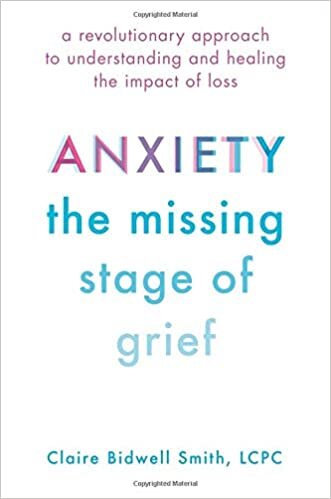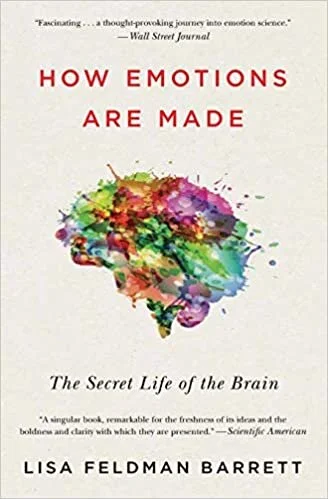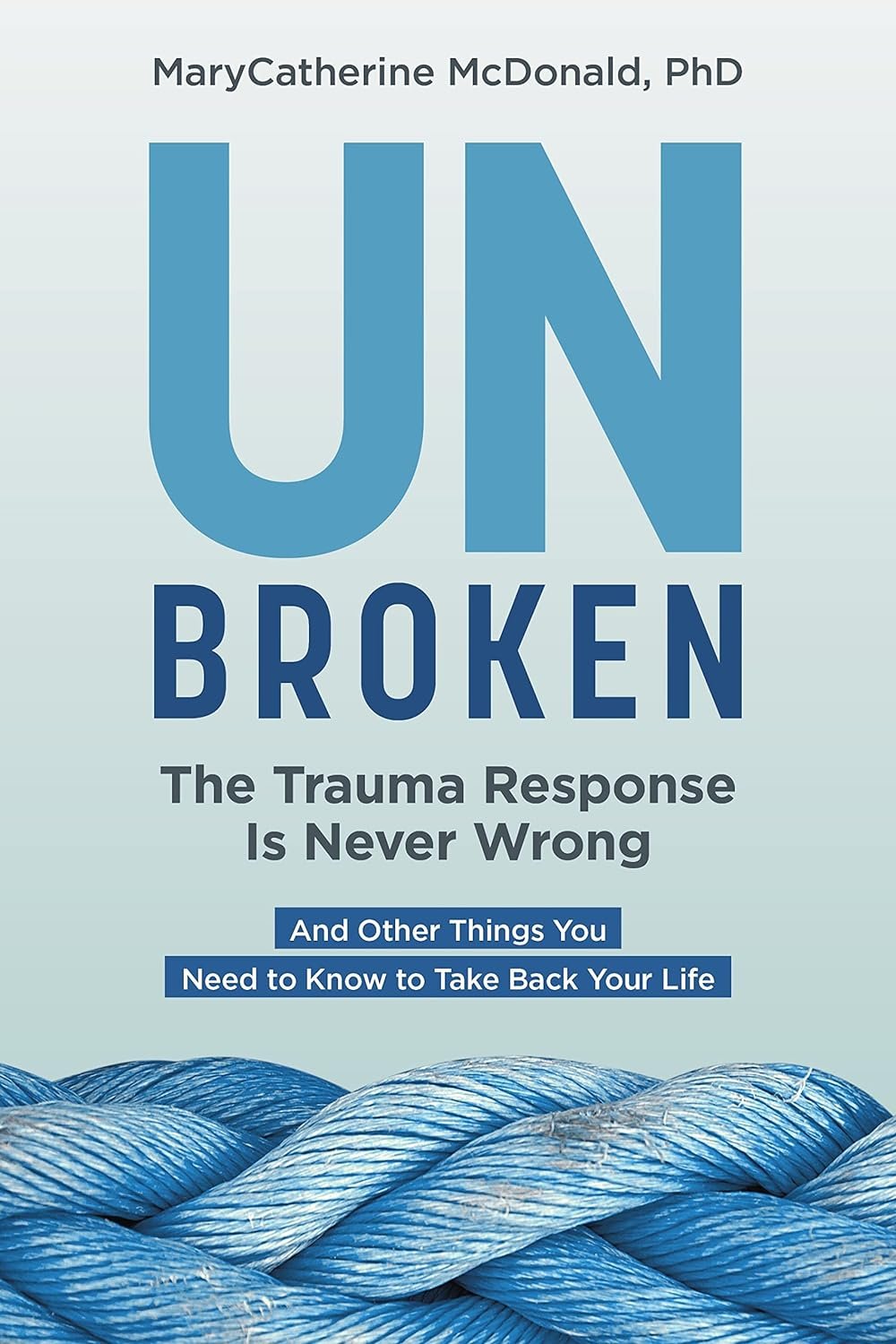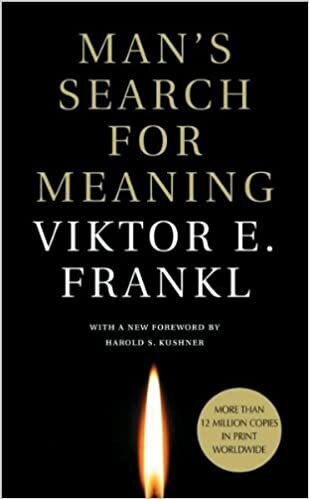20 Books for Stress, Anxiety, and Overthinking
Imagine that the titles below are in my little free library. Photo by me.
A reading list of books to help overthinkers navigate life in an overstimulated world
In 2016 I created a recommended reading list for anxiety newbies in order to share the books that first helped me on my journey to understanding how stress, anxiety, and overthinking were affecting my life. I’ve been revisiting that list and updating it with some of the books year over year. My goal is to answer the question: Which books help people make sense of the feelings overtaking their nervous system? Which books help with physical and emotional pain? Let this list act as a place to start.
For understanding how anxiety works
I'm not a huge fan of the title, since I think the word worry is a big turn-off and confusing for a lot of overthinkers. But overlook that, cause this really is the book to start with. It lays a great foundation, especially for people who are just starting to get their head around the whole "I have anxiety" thing.
2. The Anxiety Sisters’ Survival Guide
Could there have been a more natural and intuitive connection than mine with the Anxiety Sisters? I don't think so. Abbe Greenberg and Maggie Sarachek have built an online community of 200K people and host a popular podcast called The Spin Cycle. In their work, they blend their personal experience with their professional training as counselors, mental health advocates, researchers, and educators. Their book is terrific. The down-to-earth, actionable advice that Abbe and Maggie share is dead on. Great work, sisters!
3. Unwinding Anxiety
In this book, Dr Brewer explores the ways in which we all create habits around our anxiety — and how to break them down and rebuild them in healthy ways.The book is great. The app is useful (though a big clunky and costs a pretty penny). You can get the gist from the book, though, at a lower cost.
4. Anxiety: The Missing Stage of Grief
Claire Bidwell Smith’s Anxiety: The Missing Stage of Grief was the first book that revealed to me that anxiety lives in the body autonomous from the mind, and can cause panic attacks hours or even a day after the feelings flood the system, causing a lack of connection between cause and effect. It expanded my sense of what anxiety is, and how the physical response appears in unexpected places…like while grieving.
For dealing with the muscle tension and physical pain that anxiety brings
5. The Pain Relief Secret
Sarah Warren’s book The Pain Relief Secret: How to Retrain Your Nervous System, Heal Your Body, and Overcome Chronic Pain has been a gamechanger for me. I bought this book in May 2023 and found it a bit hard to engage with at first, so I stopped reading it. It wasn't until I was so desperate to improve my hip and lower back pain that I tried it experimentally by signing up for Level One Clinical Somatics exercises online. Once I started doing the exercises, I became obsessed with the entire program and devoured the book.
The core concept is called "pandiculation" which at first glance seems like stretching but involves teaching your muscles to release tension. Sarah goes in-depth about why stretching can lead to tighter muscles and that alone is pretty interesting (if you find that kinda thing interesting). It takes about half an hour a day to start and now I do about an hour every morning.
Sarah’s very clear step-by-step guidance provides not just the how but the why and a brain like mine needs that. Understanding more about how muscles actually work has really changed how I live in my body. To read more about how this book and Clinical Somatics is changing my life, check out this newsletter that I wrote about it.
6. Burnout
I heard about this book on a podcast and it was a happy surprise to learn that we share a literary agent! Burnout delves into how emotions can affect our bodies without us even knowing it’s happening. The book explores some of the core reasons women may be facing the kinds of symptoms I talk about so frequently, and then it works to systematically break the stress cycle down. I listened to the audiobook and found I got something out of every single chapter.
7. Women’s Guide to Managing Migraine
I’m including Susan Hutchinson’s Women’s Guide to Managing Migraine just in case it helps just one of you reading this post. As a lifelong migraine sufferer, I have never found a book on migraines that helped me understand how the hormone flood affects my migraine cycles. It’s also hormone waves that affect our bodies when we’re stressed. The key words to spot in this subtitle is “Understanding the Hormone Connection” — that is crucially important in both migraine and anxiety.
8. Break Through Pain
A good friend of mine named Molly had a painful medical issue a few years ago. “The pain was bad as labor,” she said. “And the only thing that helped me was Shinzen Young’s Break Through Pain.” I was so struck by the clarity of the experience she described and know that the next time I am facing physical discomfort I will be using the audio version of these meditations to help me. I think you should, too.
9. The Mindbody Prescription
I was handed Dr John Sarno’s Mindbody Prescription in my fated neurologist appointment where I first learned I has Generalized Anxiety Disorder (age 40). It was the first time I truly understand that the mind-body connection wasn’t theoretical, but real—and that I was experiencing it. Sarno digs into the personality traits of people who are susceptible to this kind of physical response to emotional pain. I wonder if you might recognize yourself in what he describes?
For understanding emotions
When it comes to books on understanding what emotions really are, you can’t do better than these two. I’m biased when it comes to Marc Brackett’s Permission to Feel, as I am lucky enough to get to work with him on How We Feel. And Lisa Feldman Barrett’s How Emotions are Made changed the way I think about how emotions are processed. This is core, fundamental groundwork that will has helped me frame emotions in my life in a new way.
12. Unbroken: The Trauma Response Is Never Wrong
I have become a devotee of new-old kind of therapy called narrative healing. Around since the 1970s, it seems to be breaking through in a more popular way, now. It’s particularly effective with overthinkers like myself who are prone to editing our stories to suit our audiences. A great starting point MaryCatherine McDonald, Unbroken: The Trauma Response Is Never Wrong. The book radically altered my understanding of the role of storytelling in my own healing. McDonald’s breakthrough insight: finding a “dwelling place” for traumatic experiences is critical to the functioning of our nervous system. In other words, two people may have identical difficult experiences as children, but only the one who lacks a trusted friend, parent, or teacher to help them “find a home” for their story will experience it as trauma.
For a mindful approach
13. Catching the Big Fish
I’m a sucker for David Lynch: his movies, his approach to meditation, and his creative process. I dip into this simple book regularly to reset. Tapping into creativity helps me deal with overthinking, stress, and anxiety. I recommend you try it.
14. It’s OK to feel things deeply
Carissa Potter’s lovely little book is a visual reminder that being sensitive is nothing to be ashamed of. I don’t think we can be told It’s OK to feel things deeply enough. Let this book try to do it for you as it has for me.
15. Wherever You Go, There You Are
The title alone: Wherever You Go, There You Are. I can’t tell you how many times, when considering a life change or move, I think of those words. This book is filled with principles about mindfulness, but I love the metaphors best. A great way to get out of your head.
For gaining bigger perspective
16. Man’s Search for Meaning
Victor Frankl’s Man’s Search for Meaning brings me a sense of inner peace and human connection in a way very few do. If you feel you are at the end of your rope and unsure how to face daily life, this book is here for you.
17. Culture of Fear
My husband brought the Culture of Fear into our marriage. He has always been a staunch believer in using data to make sense of the things we fear. “If we really understood how statistics worked, we wouldn’t be afraid of airplanes at all and we’d take driving more seriously,” he says.
18. Soul without Shame
A colleague of mine at Pinterest recommended Soul without Shame, saying “I know it sounds cheesy, but I think this book is actually really good.” And she was right. Simply acknowledging the role of our soul in our life brought me peace. It might you, too. Give it a try.
For understanding the brain
19. My Stroke of Insight
I read Jill Bolte Taylor’s My Stroke of Insight many, many years ago and have never forgotten it. In this book, a brain scientist describes the stroke that affected her brain, thinking, and emotions. I still think “step to the right”—a phrase Taylor repeats frequently, describing the feelings of wellbeing that come from turning down the brain chatter of our left brains.
20. Atomic Habits
“But this book isn’t about anxiety at all,” you might be saying to yourself. But I’d argue that James Clear’s book Atomic Habits is a great book for people who are feeling anxiety in their bodies. It helped me understand how to spot and support healthy habit-building in myself, which in turn positively affects mental health. Think of it as a pillar of cognitive behavioral therapy: The more you can tune into the actions that make up your day, the easier it will be to start changing your feelings for the better.
Bonus book!
Please forgive me for putting my own book, Get Out Of My Head, on this list. But it is probably the book that has helped me deal with stress, anxiety, and overthinking the most. Putting my own experience into words has helped me make sense of it. I hope it helps you too.
Updated Feb 1, 2024





















